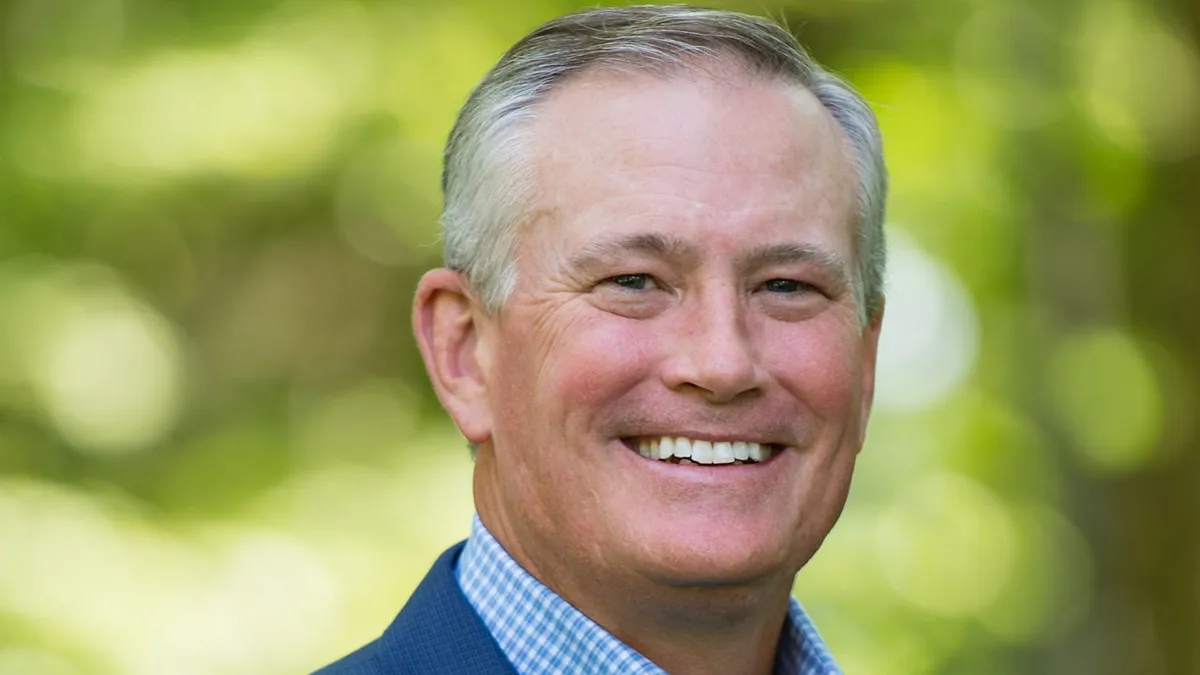Some of the medtech industry’s most prominent names had planned to gather in Toronto this week for an annual conference put on by AdvaMed, but, like nearly all events since March, convened online instead for a series of live-streamed panels and other discussions.
As major medtechs gear up for third-quarter earnings calls in the coming weeks, many insights from the three-day live segment of the meeting centered around the latest picture of the industry’s COVID-19 response and recovery, with lessons already taken from more than half a year of operating in pandemic mode.
Notably, many execs at this year's event have new top job titles since last year's conference. Of those highlighted below, four out of five only assumed their current roles within the last year and a half — a baptism by fire.
KEVIN LOBO, CEO at Stryker: COVID-19 is accelerating the shift of procedures to ASCs
Lobo, in the second half of a two-year term as AdvaMed chairman, emphasized Stryker's view that more procedures are and will move from hospitals to outpatient settings like ambulatory surgery centers.
"There's a monumental shift that will occur in the next decade," Lobo said, which began prior to the pandemic. "Every hospital that I speak to, they have plans they had in place that they plan to accelerate to either renovate facilities or create new surgery centers.
"Before, patients were somewhat reticent to go to a surgery center," Lobo said. But now with the risk of COVID-19 looming, "the idea of going home the same day is very appealing."
"We've had to change our company, our whole approach," Lobo added. "The center of our universe was the hospital operating room." One adjustment, for instance, is that surgery centers aren't able to receive as many sales reps.
The medtech companies whose "center of gravity" is in the hospital OR "have to adjust and change their approach and have a different offense for the surgery centers," Lobo advised.
TOM POLEN, CEO at BD: Procedure recovery continues to vary widely by geography
Polen, another newly minted medtech CEO this year, declined to offer new color on procedure recovery beyond commentary on its most recent earnings call. But Polen echoed comments from Lobo on how the billions of dollars in CARES Act funding to U.S. hospitals has bolstered the healthcare industry and, subsequently, medtech companies better than expected.
"It's supporting the healthcare system in a way which is a positive surprise," Polen said.
But that stimulus is largely unique to the U.S. "There's other geographies around the world that may not have that."
Polen noted that China, given its earlier timeline with the coronavirus, continues to be on the leading edge of procedure volume recovery.
GEOFF MARTHA, CEO at Medtronic: Hospitals are embracing technologies that keep both sales reps and patients away
Hospitals don't want unnecessary foot traffic, and that attitude is here to stay, Martha asserted this week. "Anything that can be done remote or virtual is preferred," he said, and that applies to how medtech companies and patients alike interact with healthcare systems.
Martha has been vocal about the importance of remote patient monitoring technologies since taking on the role of CEO mid-pandemic. The COVID-19 experience has helped Medtronic realize more activities that cannot just be done remotely, but can be done so effectively, Martha said. For many cases in which field reps would traditionally be in the operating room, those reps can now service procedures remotely, which could very well be a lasting change.
As for keeping patients distanced from hospitals, Martha said hospitals are doubling down on avoidable repeat interactions with patients following procedures.
The reality of rehospitalization was "maybe more accepted than it should have been," Martha said. But now, the devices that have data supporting lower rate of complications are in higher demand and hospitals may be willing to pay more of a premium.
LIANE TEPLITSKY, VP of WW Robotics at Zimmer Biomet: The need for objective measures in the OR supports adoption of robotics
The incidence of robot-assisted surgery took a hit this year given the broader impact to elective procedures in light of COVID-19 restrictions. But the pandemic has also highlighted how technologies like robots can help reduce direct patient-provider interactions at a time when distancing is deemed critical, setting the field up to grow further as the medtech industry recovers.
Some of the biggest selling points for robotic surgery, according to Teplitsky, is increasing predictability and efficiency during a procedure by automating pre-operative planning and needle accuracy.
Past questions over why some patients have more satisfactory surgery experiences than others may be, for example, due to surgeon subjectivity on implant placement, Teplitsky said. "We need to bring objective measures into the OR to really improve our patient outcomes, and robotics does this."
Teplitsky's role covers not just Zimmer Biomet's Rosa robotic platform, but the mymobility app used to engage patients before and after an operation. Interest in the technology has grown in 2020 as telehealth has become common, Teplitsky said.
LISA EARNHARDT, EVP of Medical Devices at Abbott: Urgency and agility are fueling COVID-19 response
Earnhardt joined Abbott last summer after over a decade at the helm of Intersect ENT. It "has definitely been a year I haven’t wanted to repeat,” Earnhardt said this week.
For Abbott to play a major role in U.S. coronavirus diagnostics mobilization, the company had to reprioritize work in other areas, pull in people from all different divisions of the company and "decide to go all in," Earnhardt said. The sense of urgency has been key in enabling the development, authorization and scale-up of now six different COVID-19 tests.
"Obviously this year has highlighted the need for agility," Earnhardt said.
Many challenges that medtech companies will face going forward have been on display this year. "The pandemic has highlighted many of those, in terms of gaps of access, the role of infectious and chronic diseases, to the impact of social and economic gaps in society," Earnhardt said.
In addition to how recent events have reshaped industry operations, in some ways they've also affected management roles. "I think we all realize that just delivering on the numbers, it's necessary but it's not sufficient ... it's a welcome change for all of us in terms of really using our platform."

















